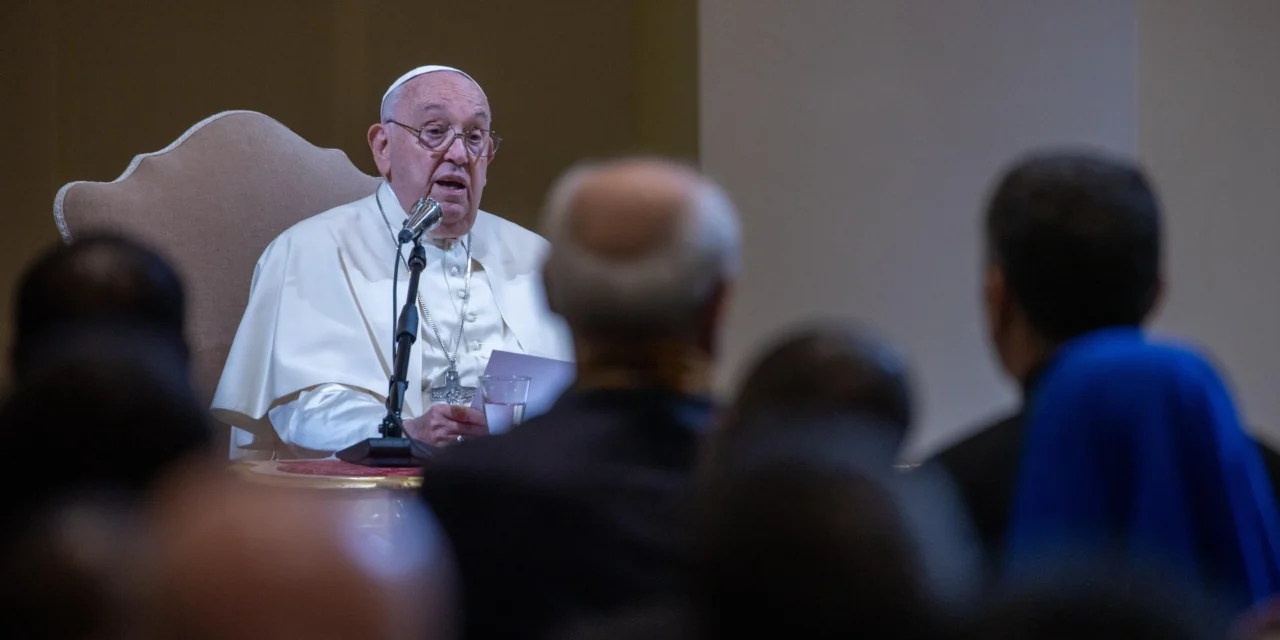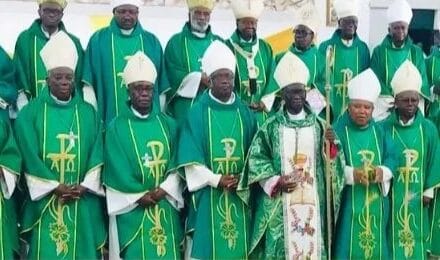Pope Francis warned against “Coca-Cola spirituality” at the Pontifical Gregorian University in Rome on Tuesday, where minutes earlier the rector had highlighted the witness of imprisoned-then-exiled Nicaraguan Bishop Rolando Álvarez as an example of authentic Christian courage.
Speaking at the university’s Dies Academicus celebration, the pope told faculty and students to avoid becoming “disciples of Coca-Cola spirituality,” using the metaphor to warn against superficial approaches to faith formation.
“Have you asked yourselves where you are going and why you are doing what you are doing?” the pope challenged his audience on November 4.
“It is necessary to know where one is going without losing sight of the horizon that unites each one’s path with the current and ultimate end.”
Jesuit Father Mark A. Lewis, rector of the Gregorian University, opened the event by noting that Álvarez, who studied at the university, “preaches the Gospel with courage and remains in solidarity with his priests, his flock, and all those who are deprived of their human rights.”
Drawing on Saint Francis Xavier’s example, the pope emphasized the need to “be missionaries out of love for our brothers and sisters and to be available to the Lord’s call.”
He urged the academic community to avoid “pretensions that turn God’s project into something bureaucratic, rigid, and without warmth, superimposing agendas and ambitions over the plans of providence.”
The pope called for putting “heart” into formation work, warning that without it, education becomes either “arid intellectualism or perverse narcissism.” “When the heart is missing, you can see it,” Francis emphasized.
The pope called for a university with “the smell of the people” that promotes imagination and reveals God’s love, “who always takes the first step in a world that seems to have lost its heart.”
He lamented that the “world is in flames” due to the “madness of war, which covers every hope with the shadow of death.”
Francis urged the community to “open the gaze of the heart” and seek unity in diversity through exchanging gifts, calling for greater study of Eastern traditions. He urged avoiding abstract ideas born in offices and promoting “contact with the life of peoples, the symbols of cultures, and the cries of the suffering of the poor.” “Touch this flesh, walk in the mud, and get your hands dirty,” he emphasized.
The visit marked a significant development in the university’s history, coinciding with the recent integration of three institutions — the Collegium Maximum, the Pontifical Biblical Institute, and the Pontifical Oriental Institute — under papal directive.
Founded in 1551 as the Roman College by St. Ignatius of Loyola, the Gregorian University currently serves 2,952 students from 121 countries studying theology, philosophy, canon law, psychology, and anthropology, among other disciplines.
After leaving the university, the pope privately visited Italian political figure Emma Bonino at her Rome apartment. Bonino, 76, who was recently hospitalized for respiratory and heart issues, is known as a leading voice in Italy’s pro-abortion movement. Pope Francis has repeatedly condemned abortion in the strongest terms. The Vatican press office confirmed the visit but offered no additional information.
- CATHOLIC ARCHBISHOP IN GHANA HAILS POPE LEO XIV AS GOD’S GIFT - 23 mai 2025
- POPE LEO XIV TO APPROVE CANONIZATIONS - 22 mai 2025
- THE EVOLUTION OF PAPAL TRANSPORTATION - 20 mai 2025







